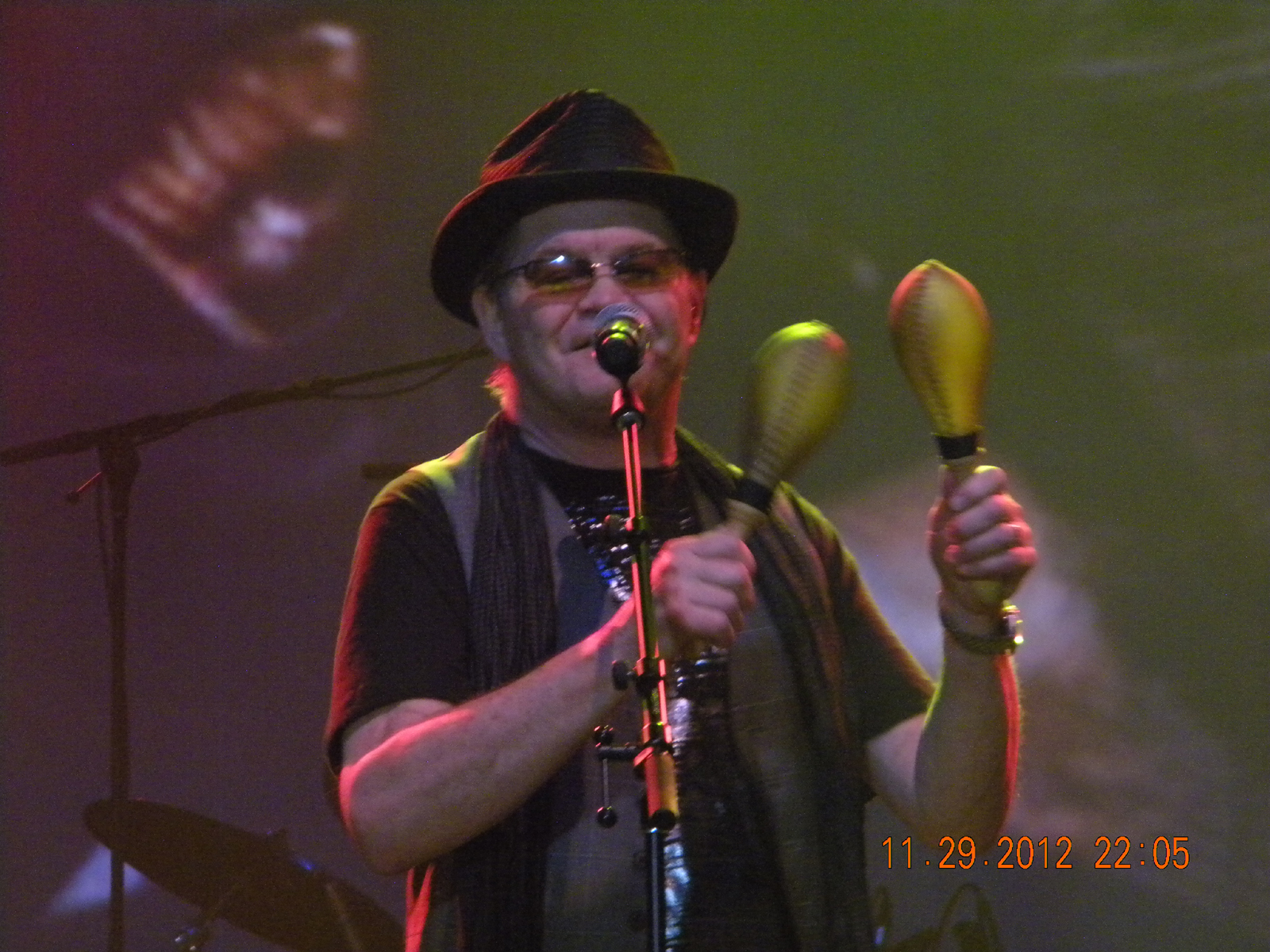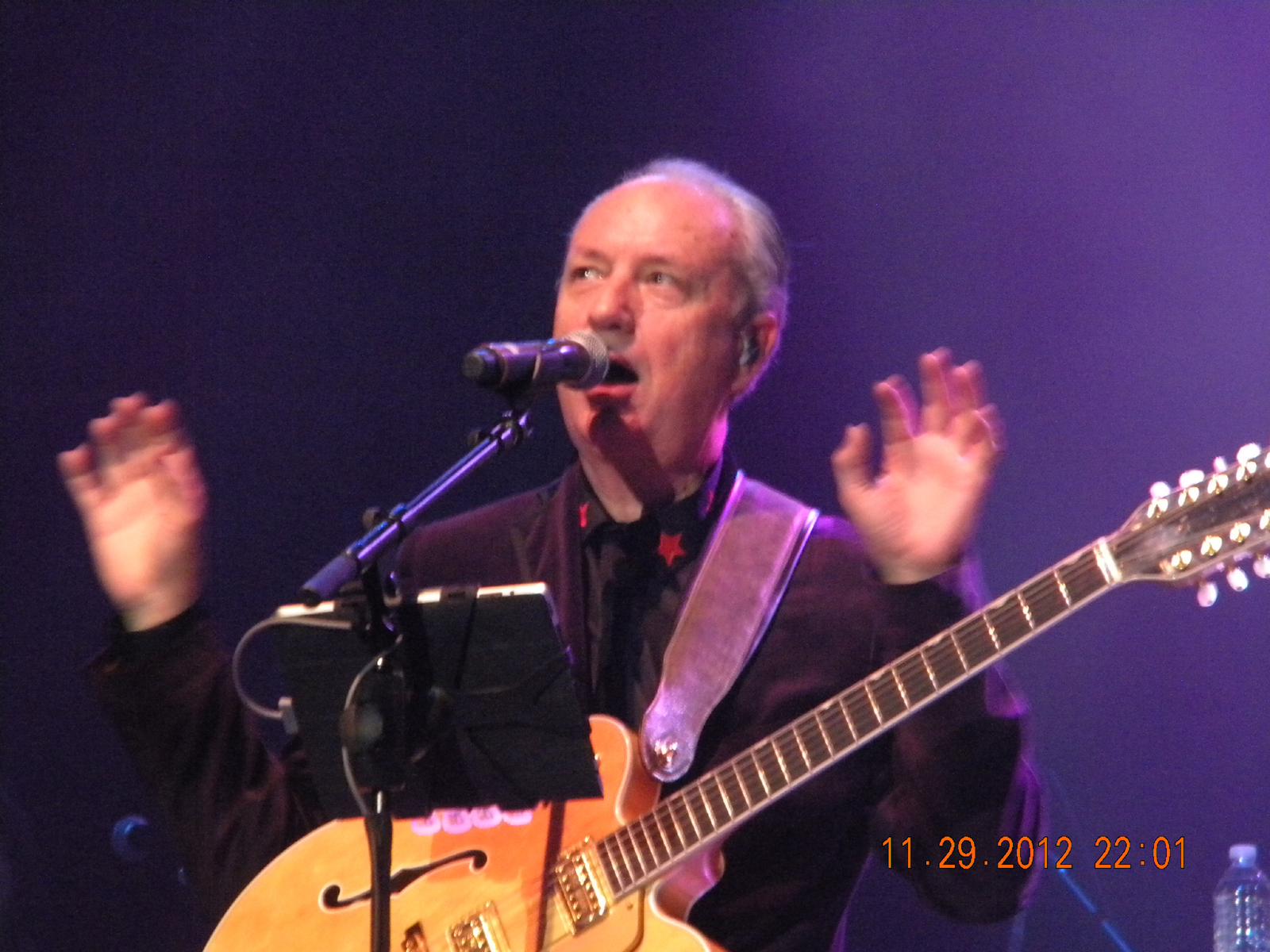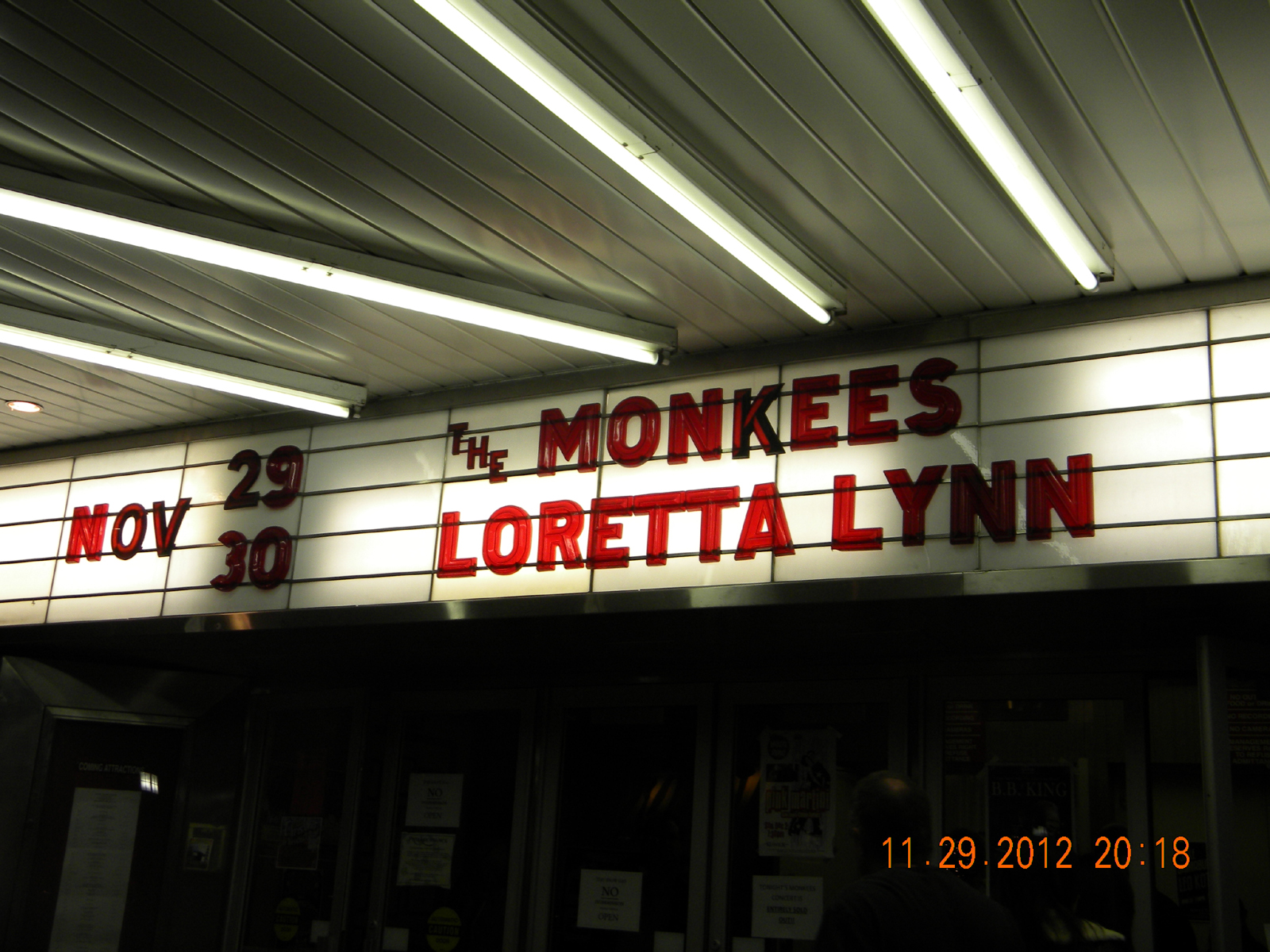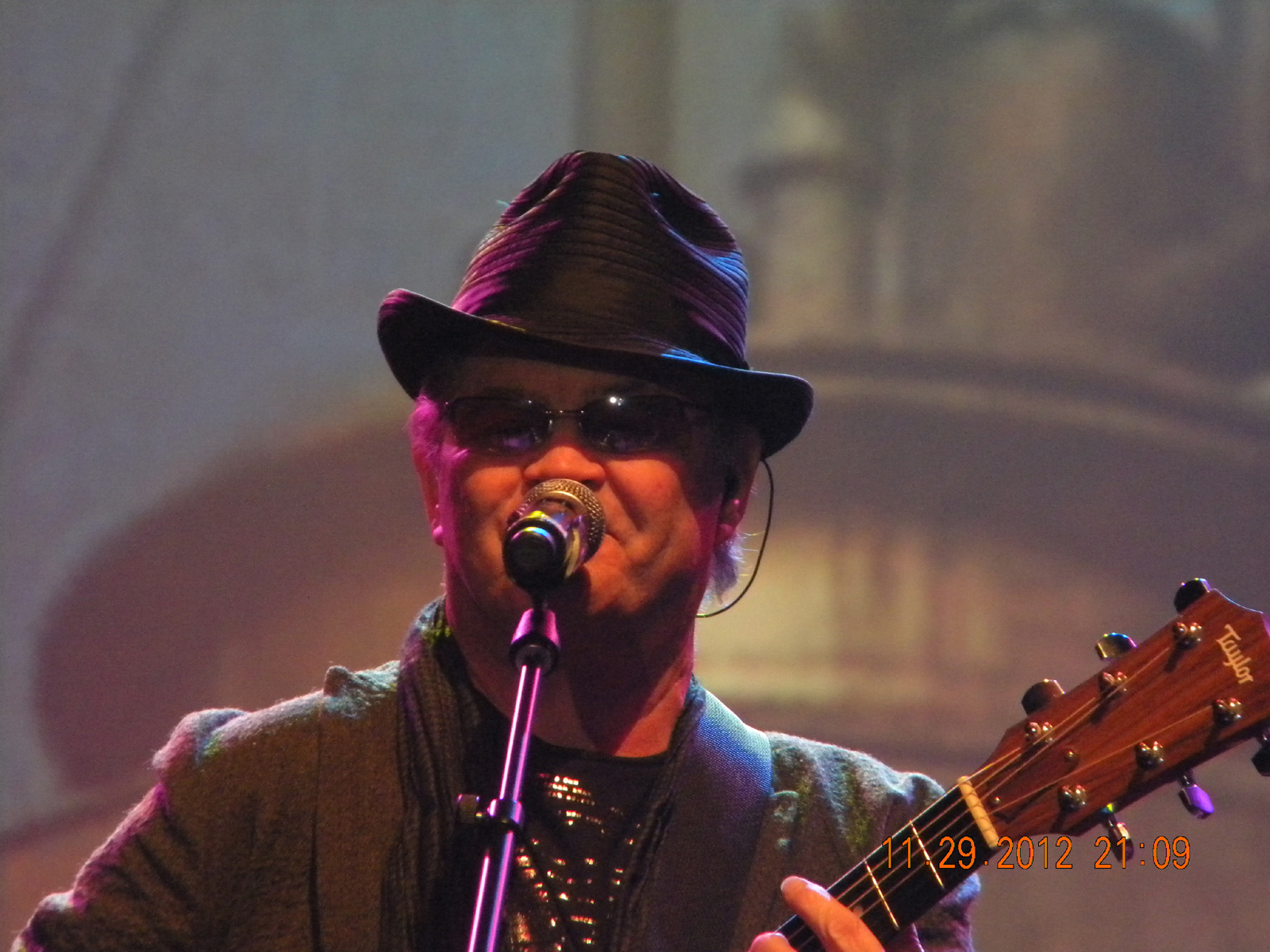If you know me at all, you know I’m a huge Monkees fan. I was devastated when Davy Jones died earlier this year, because I was sure I’d never see another Monkees concert again. However, in a surprise move, Micky Dolenz, Peter Tork, and Michael Nesmith got together and did a short tour this November!
Disclaimer: All the photos in this post are my own and are owned by me.
If you use them for any purpose, please identify them and attribute them to me.
Do not change them in any way or use them commercially.
Not only were they touring, but they were playing my “hometown” theater, the Keswick…on Nov 29th. Why does the date matter? Because my two best friends and I rocked the Monkees all through high school and college and beyond. And Donna Hanson Woolman’s birthday was Nov 29th. She died almost 10 years ago, and I couldn’t help but feel some sort of karmic convergence in the date.
And to further the cosmic aspect of the Keswick’s date, my other Monkee friend, Donna L., scored 6th row center seats for me. The amazing thing is not that she got the seats, but that she got them 4 HOURS after the tickets had gone on sale. As a veteran of many concerts, I can tell you those prime seats should have been gone in the first 4 MINUTES. While I don’t believe that God cares a hoot where I sat to see the Monkees, I couldn’t help feeling that Donna Hanson Woolman had a heavenly hand in making that happen.
So, I saw them at the Keswick Theater in Glenside, PA, and at the NJ State Theater in New Brunswick, NJ. Both shows rocked! All the favorites, plus all of my favorites that they never used to play. Since Mike never toured with the other three in the USA before, this was the first time I ever heard a lot of his songs live. Since his are some of my favorite tunes, I greatly enjoyed rocking to them.
 The guys sounded great, and the music was excellent. These guys can still rock it like no one’s business! Mike on the guitar, Peter on guitar, keyboard, and banjo, and Micky on guitar, drums, tambourine, maracas, bongos, and the big timpani drum for Randy Scouse Git. The crowds jammed hard, too, singing along with every song.
The guys sounded great, and the music was excellent. These guys can still rock it like no one’s business! Mike on the guitar, Peter on guitar, keyboard, and banjo, and Micky on guitar, drums, tambourine, maracas, bongos, and the big timpani drum for Randy Scouse Git. The crowds jammed hard, too, singing along with every song.
The guys had an easy rapport with each other, talking back and forth in a mix of ad lib and scripted banter. They didn’t mind goofing around a little either, with Peter hamming it up during Auntie Grizelda, and Mike pretending to be a Moog synthesizer during Daily Nightly.
a little either, with Peter hamming it up during Auntie Grizelda, and Mike pretending to be a Moog synthesizer during Daily Nightly.
 In an interview I read, Peter stated very firmly that this was not meant to be a “Davy is Dead” tour, but that Davy would be very much represented. Sure enough, on the big screen behind the band, video clips from the TV show, their movie HEAD, and even from 33 1/2 Revolutions Per Monkee ran continuously, Davy included. They also had a special tribute video montage of Davy, featuring clips from his pre-Monkees day as well as Monkee highlights. And, of course, no Monkees concert could be complete without Daydream Believer. For this, Micky pulled an audience member up on stage to help him sing, and the audience as a whole carried the refrain, while Davy danced on the big screen. It was a moving and fitting tribute.
In an interview I read, Peter stated very firmly that this was not meant to be a “Davy is Dead” tour, but that Davy would be very much represented. Sure enough, on the big screen behind the band, video clips from the TV show, their movie HEAD, and even from 33 1/2 Revolutions Per Monkee ran continuously, Davy included. They also had a special tribute video montage of Davy, featuring clips from his pre-Monkees day as well as Monkee highlights. And, of course, no Monkees concert could be complete without Daydream Believer. For this, Micky pulled an audience member up on stage to help him sing, and the audience as a whole carried the refrain, while Davy danced on the big screen. It was a moving and fitting tribute.
I had a great time, hitting back-to-back Monkees concerts and singing myself hoarse! I felt like a teenager again – until Toddler woke me up very early in the morning. Then I remembered I wasn’t 18 anymore!
I’ve been a Monkees fan since grade school, and starting following their tours in 1986, their 20th Reunion Tour. I’ve seen them together and on solo tours many times over the past 26 years. No matter how many times I see them, or in what configuration, I always love their shows. Together or separate, they have never failed to bring the energy, the skillful musicianship, and the showmanship I’ve come to expect.
Even after all these years, I’m A Believer.






